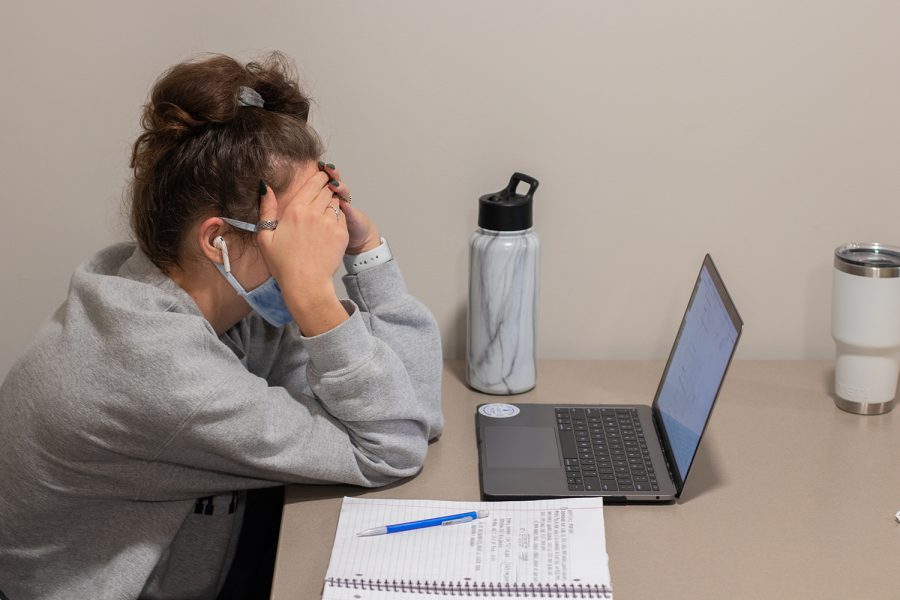Letter to the Editor | UI Instructors must use the second instructional break efficiently
As the second instructional break looms, instructors have a second chance to get it right.
Photo Illustration.
April 1, 2021
One day recently, I logged into my Zoom classroom, greeted by a slow trickle of exhausted faces. For 12 months, students have logged into screen after screen, engaging in ICON modules and Zoom breakout rooms to make sense of their college courses. The fatigue is a symptom of a short-term strategy made permanent.
Simultaneously, the University of Iowa has done little to help students refill their cups. Administrators encourage students worn out from screen time to attend webinars about wellness, some of which talk at attendees for the entire time.
Perhaps most outrageous, the university canceled spring break — a seven-day, collective pause everyone must take. In its place, administrators instituted two “instructional breaks.” If the first instructional break was any proof, these breaks are broken.
What use is a day’s break when faculty still hold a class? How can a student reclaim their energy with a test the next day? How should instructors gather their energy when department chairs put meetings on their calendars? What about those students for whom class falls on neither day, mainly upper-level undergraduate and graduate students?
As we approach the second-planned instructional break on April 14, we, as instructors, have a chance to do better this round. Are you feeling unsure of what to do? Here are some things to consider.
Do not assign readings for the class — or even better — for the week. Exhausted students do not retain what they learn; no pedagogical techniques or engaging activities will help tired people. Move test or paper dates. Those who do not hold class on the 14, consider what you assign for the day before or after. What other opportunities exist for you to move papers or tests?
Students need a break. If we cannot give them a campus-wide spring break, can we give them one day of reprieve?
-Alex C. Lange, University of Iowa Graduate Student



